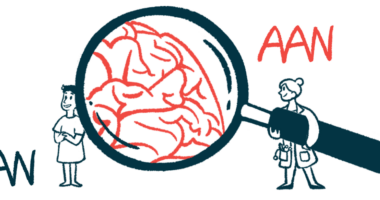SPEAK OUT! Voice Therapy Program Improves Speech in Parkinson’s Patients, Study Shows

A voice therapy program called SPEAK OUT!, developed by the Parkinson Voice Project, can help Parkinson’s disease patients regain their ability to communicate, according to a new study.
Parkinson’s patients, especially those who received the training in early stages of the disease, saw improvements in speech intensity, pitch range, reading intelligibility, and vocal quality after SPEAK OUT! therapy.
The study, “Prosodic Improvement in Persons with Parkinson Disease Receiving SPEAK OUT! Voice Therapy,” was published in the journal Folia Phoniatrica et Logopaedica.
Many Parkinson’s patients experience voice dysfunctions and problems in their ability to articulate speech.
Speech deficits are often characterized by reduced loudness, breathy voice, monotone pitch, voice tremor, intermittent rapid rushes of speech, and imprecise production of consonants, which significantly impacts a patient’s ability to communicate.
For many patients, this is just another disease manifestation to which they resign themselves. However, speech impairment can lead to social and emotional isolation, with severe implications in the quality of life of patients.
SPEAK OUT! is an individual speech therapy program of 12 sessions, 45 minutes each, given over four weeks.
Interested in Parkinson’s Disease research? Check out our forums and join the conversation!
Sessions are planned to cover six main vocal activities, including vocal warm-ups, vowel prolongation exercises, intonation/gliding exercises, verbal delivery of automatic sequences, oral reading of sentences or passages, and cognitive tasks.
Participants are also asked to do homework assignments, which include a twice-daily speech exercise for 25 consecutive days.
Researchers at the Motor Speech and Prosody Research Lab at the University of Oklahoma enrolled 16 patients who had Parkinson’s for a mean duration of 7.9 years.
They were evaluated at the INTEGRIS Jim Thorpe Rehabilitation Center in Oklahoma City one to three weeks before and after the voice therapy. During the assessment session, they were asked to read a short text and to speak in a conversational style.
SPEAK OUT! effects were assessed using self-reported questionnaires — Voice Handicap Index (VHI) and Voice-related Quality of Life (V-ROL) questionnaires — and by a clinically certified speech-language specialist who rated the ability of patients to articulate their speech.
The voice program brought benefits to patients, who reported an average improvement in their VHI and V-ROL questionnaires scores of 21 and 6 points, respectively. This represented a change from severe to mild speech impairment after therapy.
Clinical assessment also showed significant improvements in reading intonation and intelligibility. Also, participants were able to use fewer monotone sounds and less whispery voices after receiving the therapy. This evaluation also confirmed a significant improvement in overall speech impairment.
These findings suggest that “while Parkinson’s disease is progressive and degenerative in nature, speech impairments associated with the disease respond favorably to rehabilitation,” the researchers wrote.
But because the voice therapy is more effective in patients who had Parkinson’s for a shorter amount of time, researchers suggest that SPEAK OUT! should be administered as early as possible after disease onset.






